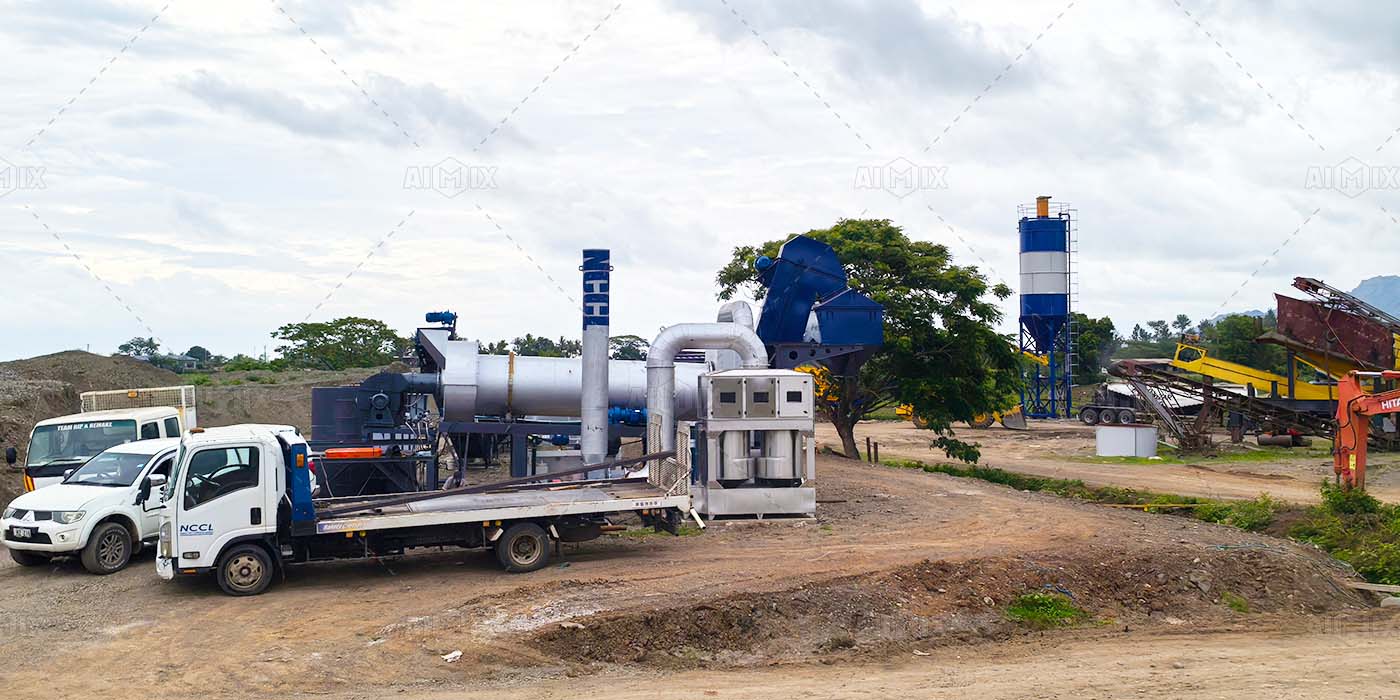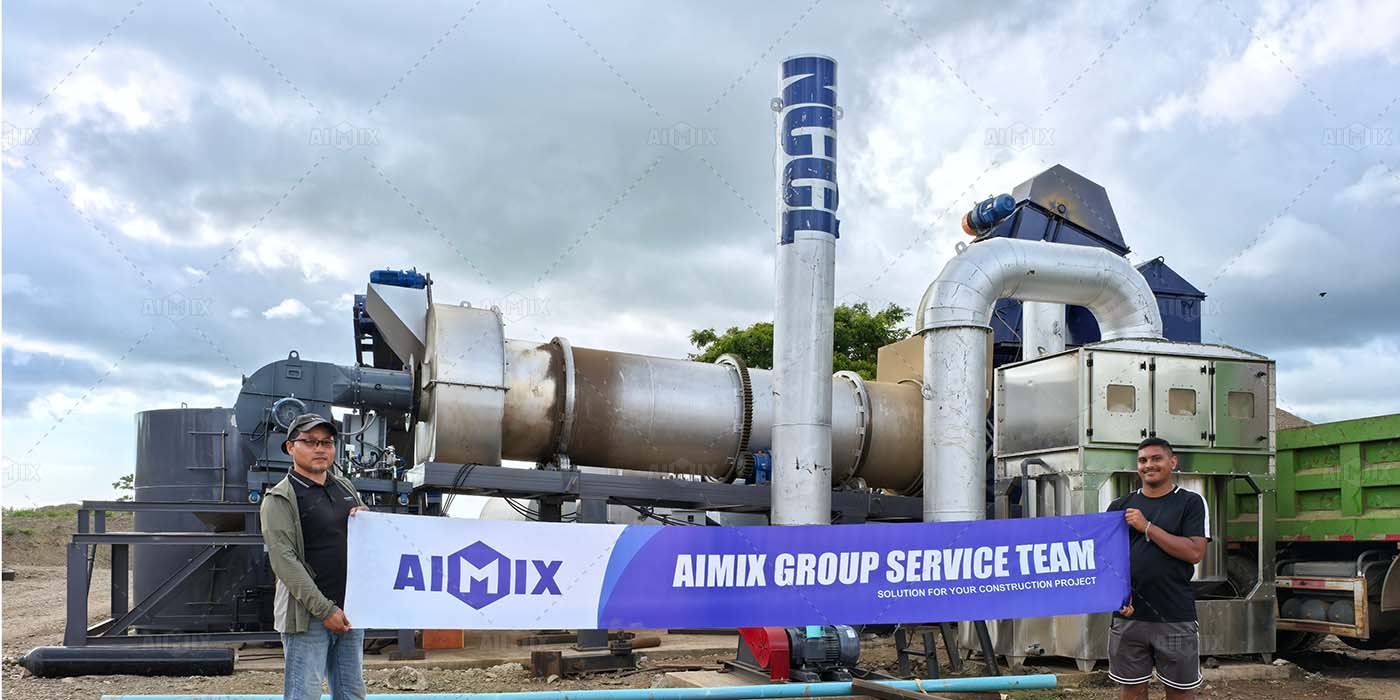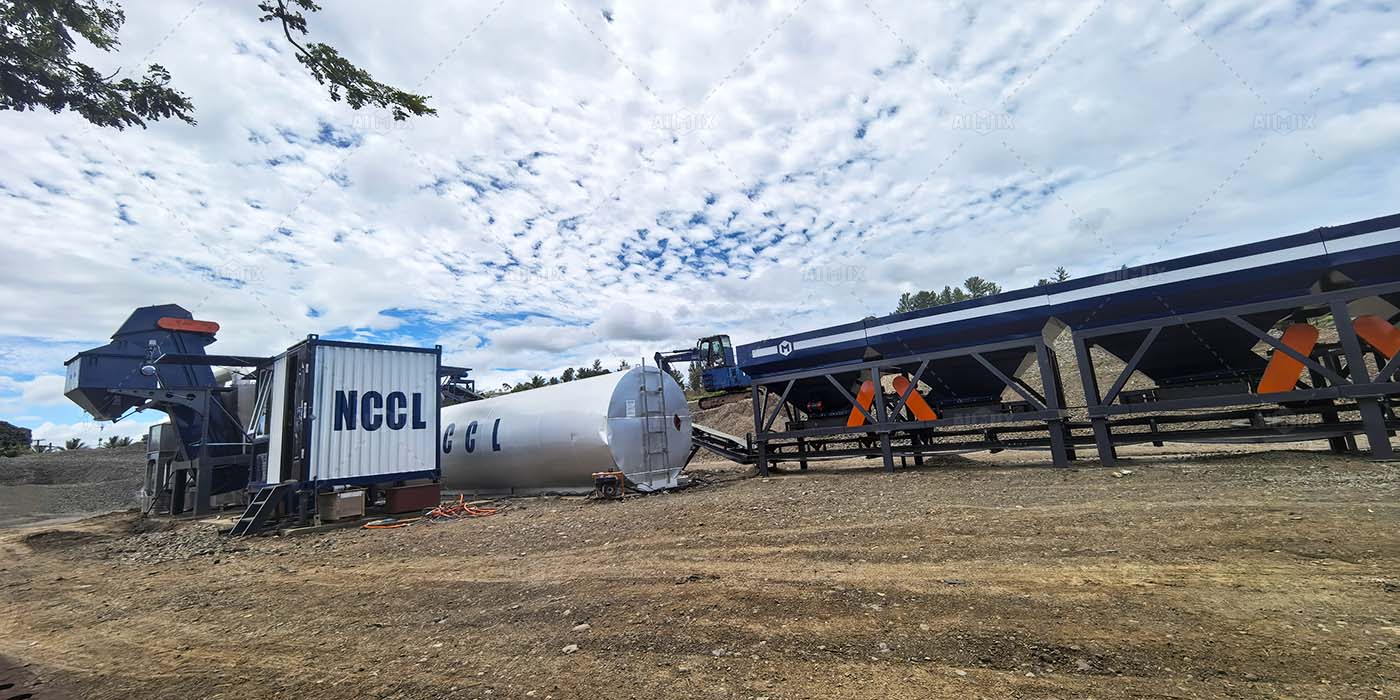For contractors and local authorities in the Philippines, planning small island road works often raises the question: what type of asphalt plant suits the project? In particular, a 20–30 tph asphalt drum mix plant appears as a popular choice. However, before making a purchase, it is important to understand whether such capacity can meet daily project demands efficiently, reduce costs, and simplify logistics.

Understanding Small Island Road Works Requirements
Small island projects usually involve limited road lengths, challenging terrain, and restricted access. These factors influence the choice of equipment, particularly asphalt mixing plants. Unlike large mainland projects, islands often face transportation constraints, limited workforce, and higher material costs.
Considering these challenges, a small asphalt plant for sale may be ideal. It is mobile, requires less space, and can produce continuous asphalt without frequent stops. Consequently, contractors save both time and money while ensuring quality.
Daily Asphalt Demand Estimation
To determine if a 20–30 tph plant is sufficient, estimating daily asphalt requirements is crucial. For example, a small island road project of 5 km length, 6 m width, and 0.05 m thickness requires approximately 1,500 m³ of asphalt.
If a drum mix plant operates at 25 tph, and works 6–8 hours per day, it produces around 150–200 tons per day. Therefore, the plant can complete the job efficiently within the planned schedule, especially for short roads or periodic maintenance tasks.
Project Cost and Logistics Considerations
Operating a smaller plant reduces initial investment and transportation costs. Large batching plants may be impractical due to limited access and high shipping expenses to remote islands. Furthermore, smaller plants are easier to relocate between project sites, which is essential for island projects where multiple roads might need resurfacing sequentially.
Additionally, using a 20–30 tph plant minimizes fuel consumption and manpower requirements. Contractors can assign a compact team, reducing operational complexity and saving money without compromising asphalt quality.

Technical Advantages of a 20–30 tph Asphalt Drum Mix Plant
Drum mix plants of 20–30 tph offer specific technical advantages that suit island projects:
Continuous Production Mode
Unlike batch plants, drum mix plants operate continuously. This ensures consistent asphalt temperature and homogeneous mixing, which improves the final road quality. Continuous operation is also easier to manage with small crews and limited storage space.
Compact Design and Mobility
Modern mini asphalt mixing plant models are compact and can be transported in parts or as a whole unit to island locations. Installation requires minimal civil work, and the plant can start production shortly after arrival. This flexibility is especially valuable in areas with limited infrastructure.
Energy Efficiency and Maintenance
Modern drum mix plants are designed for fuel efficiency. They reduce energy consumption, which is crucial for islands where fuel logistics can be complicated. Moreover, maintenance is straightforward, with fewer moving parts than a batch plant, reducing downtime and labor costs.

Quality Considerations for Island Road Works
Even for small-scale projects, asphalt quality cannot be compromised. A 20–30 tph drum mix plant can produce high-quality asphalt if properly configured:
- Use high-quality aggregates suitable for the tropical climate.
- Ensure accurate temperature control during production to prevent premature cooling or overheating.
- Maintain a balanced mix of bitumen and aggregates for long-lasting pavement.
By following these practices, small island roads can achieve durability comparable to larger projects on the mainland.
When a Larger Plant Might Be Needed
Although a 20–30 tph plant is sufficient for most small roads, larger projects or continuous urban road networks may require higher capacity. If daily asphalt demand exceeds 200–250 tons, a bigger plant may reduce working hours and project duration. In such cases, it is advisable to assess project length, budget, and logistics before finalizing the plant size.
Real-World Examples in the Philippines
Several small island projects in the Visayas and Mindanao regions successfully used 25 tph drum mix plants. These projects benefited from easy transport, fast setup, and continuous production. Contractors reported significant cost savings on manpower and fuel, while maintaining high road quality.
Such cases demonstrate that with proper planning and realistic daily output expectations, a 20–30 tph asphalt drum mix plant is a reliable solution for small island road works.

Conclusion: Choosing the Right Asphalt Plant
From a contractor's perspective, the right asphalt plant balances production needs, costs, and logistical convenience. For most small island road projects in the Philippines, a 20–30 tph asphalt drum mix plant meets these criteria efficiently. It offers mobility, continuous production, manageable costs, and quality assurance.
If you are planning small island roads or periodic maintenance projects, consider a 20–30 tph drum mix plant for your operations. Its flexibility, energy efficiency, and compact design make it a practical and cost-effective choice. With the right plant, you can complete your projects on schedule, maintain high pavement quality, and optimize your investment.
Contact us today to learn more about our asphalt drum mix plants and how they can help your island road projects succeed. Our team can guide you in selecting the best model, provide local support in the Philippines, and ensure your project runs smoothly from start to finish.